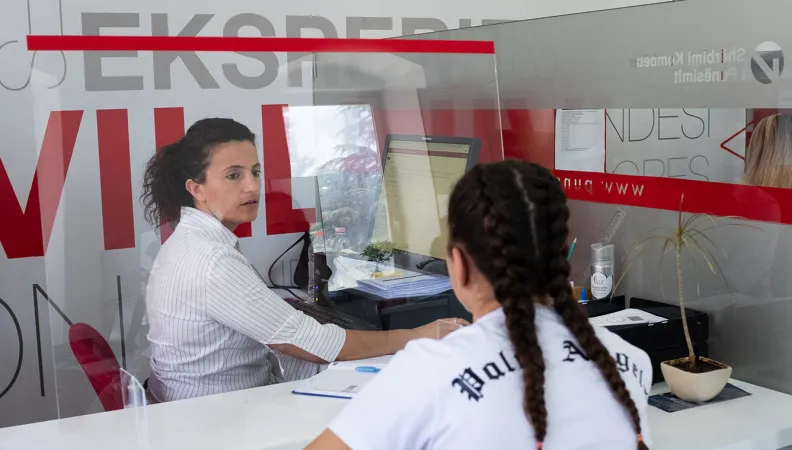Share the page
Reforms Draw the Western Balkans Closer to the EU
Published on

With EU membership on the horizon, Western Balkan countries are taking action to ensure that their standards of governance are in line with those of the European Union. AFD Group is supporting this ambitious process, notably through its subsidiary Expertise France, and its European partners in the region.
"Our mandate in the Western Balkans is original, as it involves supporting the six countries in bringing their standards, their ways of operating, closer to those of the European Union," says Dominique Hautbergue, AFD Director for the Western Balkans in Belgrade, Serbia.
With a view to future membership, Serbia, Montenegro, Albania, Northern Macedonia, Kosovo and Bosnia-Herzegovina must align their standards with European ones, in sectors as varied as energy, the environment, the rule of law and good governance.
Such wide-ranging change involve considerable investment, such as increasing the number of wastewater treatment plants for a better sanitation system, as well as adjustments to technical and administrative norms. The aim is to meet the criteria of the 35 chapters of the "acquis communautaire", the set of rights and obligations of the member states that form the basis for accession negotiations.
Expanding prospects, in the heart of Europe
Belgrade is just 1,700 km from Brussels. And because the six Western Balkan countries are surrounded by EU members and located at the center of trade between western and southeastern Europe, the region is strategic for Europe’s future.
See also: AFD Group and the Western Balkans
“Because of their central geographical location, their history and the challenges related to their diplomatic relations, the Western Balkans are where the future of Europe is going to be played out," says Dominique Hautbergue. The integration of these countries into the EU is crucial to ensure stability.
The six governments are keen to work towards rapprochement with the EU, which means ticking the boxes necessary for accession. Through the work of the AFD Group, France's support is part of this strategy. And the six countries are deepening cooperation in part thanks to the Instrument of Pre-accession Assistance (IPA): financial and technical backing provided by the EU to support reforms in countries planning to accede.
Aligning Albania’s gender equality norms
Albania, like other countries in the region, has launched reforms to move closer to the EU. Its public policies on gender are a good example of this dynamic. With the support of AFD and the World Bank, the government has launched a program to strengthen gender equality, particularly in terms of access to economic opportunities. According to the World Bank, the country loses about 20% of its GDP potential due to women's limited access to the labor market.
AFD began its activities in the Western Balkans with this emblematic project with a loan of €50 million. "As a sign of the country's investment in this key sector, Albania has become the first country in the world to borrow for the development of its gender-related public policies,” says According to Dominique Hautbergue.
See also: AFD Offers a Wide Range of Financial and Non-financial Tools in the Western Balkans
The Finance Ministry, which coordinates the program, has already put several actions into motion, covering three kinds of access to economic opportunities:
- Access to assets, through the recognition of women’s rights in real-estate and land ownership, a guarantee of economic independence
- Policies for access to jobs, enforcement of labor laws, and childcare facilities to promote women’s participation in the labor market
- An institutional mechanism for gender mainstreaming at the national and local levels, particularly through budgetary and statistical levers
Expertise France, the new subsidiary of AFD Group in international technical cooperation, is also supporting the project by providing technical guidance for strengthening the Albanian regulatory framework. It’s also encouraging cooperation between French experts (from the Chambers of Notaries) and their Albanian counterparts.
“This project is an excellent example of AFD support in Albania,” says Dominique Hautbergue.
“We’re helping to bring about concrete changes in public policies, so they encourage inclusive growth for women and men, while keeping in mind the objective of moving closer to the EU. These two dimensions will ensure that projects will have a strong impact in the medium and long term.”
The contents of this article are the sole responsibility of AFD and do not necessarily reflect the views of the European Union.
